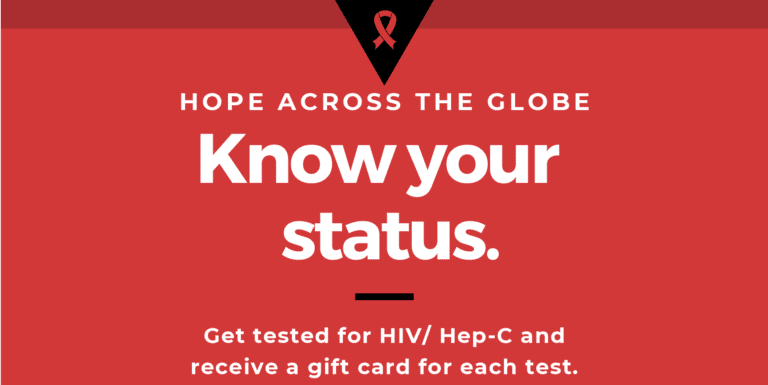The Role of STD Analysis in Informing Public Health Policies and Interventions
Sexually transmitted diseases (STDs) continue to pose significant public health challenges worldwide. The prevalence of STDs remains a cause for concern, as it affects individuals of all ages and backgrounds. To address this critical issue, STD testing and analysis play a vital role in understanding the scope of the problem, identifying trends, and informing effective public health policies and interventions. In this blog, we will explore the crucial role of STD analysis in advancing public health efforts, with a focus on the initiatives taken by Hope Across The Globe, a leading global health organization.
The Importance of STD Testing and Analysis
STD analysis is the cornerstone of identifying infections and preventing their spread. Comprehensive testing allows healthcare professionals to diagnose and treat individuals promptly, reducing the risk of complications and further transmission. Moreover, STD treatment and analysis helps to monitor trends and patterns in infection rates, identifying high-risk groups and vulnerable populations.
Hope Across The Globe recognizes that early detection through STD analysis is fundamental to controlling the spread of infections and promoting overall sexual health. By making STD testing accessible and encouraging individuals to get tested, the organization strives to create a healthier and more informed society.
Data Collection and Surveillance
Accurate and up-to-date data is critical for understanding the prevalence of STDs and their impact on public health. STD analysis involves systematic data collection and surveillance to track infection rates, monitor geographic trends, and assess the effectiveness of interventions. The data obtained from STD testing centers and healthcare facilities are instrumental in guiding evidence-based policies.
Hope Across The Globe collaborates with healthcare providers, research institutions, and public health agencies to collect and analyze STD data from diverse communities worldwide. This data-driven approach ensures that the organization’s interventions are tailored to the specific needs of each population.
Identifying High-Risk Groups and Vulnerable Populations
One of the key benefits of STD analysis is its ability to identify high-risk groups and vulnerable populations. Certain demographics, such as adolescents, young adults, men who have sex with men (MSM), and people with multiple sexual partners, may be at a higher risk of contracting STDs. Understanding these risk factors helps public health authorities design targeted interventions.
Hope Across The Globe uses the insights gained from STD analysis to design outreach programs that focus on high-risk populations. By addressing the unique challenges faced by these groups, the organization aims to reduce infection rates and promote responsible sexual behavior.
Informing Prevention and Education Programs
STD analysis plays a central role in shaping effective prevention and education programs. Data on infection rates, transmission modes, and prevalence of specific infections provide the foundation for evidence-based interventions. By analyzing this data, public health professionals can design targeted campaigns to raise awareness about safe sex practices, the importance of STD analysis, and the benefits of early diagnosis.
Hope Across The Globe is committed to promoting sexual health education as a vital component of its public health initiatives. The organization conducts awareness campaigns that highlight the significance of STD testing and prevention, aiming to empower individuals to make informed choices about their sexual health.
Monitoring the Impact of Interventions
Continuously monitoring the impact of interventions is essential for assessing their effectiveness. STD analysis allows public health experts to evaluate the success of various programs and modify strategies as needed. Whether it’s implementing community-based testing initiatives, distributing free condoms, or enhancing healthcare access, data analysis helps track progress over time.
Hope Across The Globe emphasizes the importance of regular program evaluation to ensure that its efforts have a lasting impact. By analyzing outcomes and adjusting strategies accordingly, the organization maximizes the effectiveness of its interventions and remains responsive to the changing needs of the communities it serves.
Collaboration and Global Health Impact
The fight against STDs requires a collaborative and global approach. STD analysis facilitates the exchange of information and best practices among international partners, enabling a united effort in combating the spread of infections. Data sharing and collaboration contribute to the development of innovative solutions and the sharing of successful intervention models.
Hope Across The Globe actively collaborates with health organizations, governments, and local partners to create a network of support and expertise. This collaborative approach ensures that the organization’s efforts are amplified, leading to a more significant impact on public health outcomes worldwide.
Leveraging Technology in STD Analysis
In the digital age, technology plays a crucial role in enhancing STD analysis and surveillance. Electronic health records, data analytics, and digital reporting systems streamline the collection and dissemination of STD data, enabling public health agencies to respond more rapidly to emerging trends.
Hope Across The Globe harnesses the power of technology to improve STD analysis and data management. Through innovative software and data platforms, the organization ensures that information is readily accessible to stakeholders, enabling swift decision-making and timely interventions.
Addressing Stigma and Encouraging Testing
The stigma surrounding STDs often acts as a barrier to testing and treatment. Many individuals may avoid getting tested due to fear of judgment or social repercussions. Addressing and reducing stigma is vital in encouraging more people to undergo STD testing.
Hope Across The Globe works diligently to combat stigma through its public health campaigns. By promoting a non-judgmental and supportive approach, the organization aims to create an environment where individuals feel comfortable seeking testing and treatment.
Integrating STD Analysis into Comprehensive Healthcare
STD analysis is most effective when integrated into comprehensive healthcare systems. Coordinating testing with other healthcare services, such as routine check-ups or reproductive health visits, encourages individuals to make testing a regular part of their overall health maintenance.
Hope Across The Globe advocates for the integration of STD analysis into routine healthcare services. By collaborating with healthcare providers, the organization aims to establish a seamless approach to sexual health management, making testing more accessible to all.
Conclusion
In conclusion, STD analysis plays a pivotal role in informing public health policies and interventions to combat the spread of sexually transmitted diseases. Through STD testing and data analysis, public health professionals can gain valuable insights into infection rates, high-risk groups, and trends. Armed with this knowledge, organizations like Hope Across The Globe can design evidence-based interventions, raise awareness, and promote sexual health education.
By emphasizing the importance of regular testing, early diagnosis, and targeted interventions, we can work together to reduce the burden of STDs on individuals and communities. Through collaboration, data-driven approaches, and the leveraging of technology, we can achieve our common goal of creating a healthier, safer, and more informed world. Together, we can make a lasting impact on global sexual health and pave the way for a brighter future for all.






